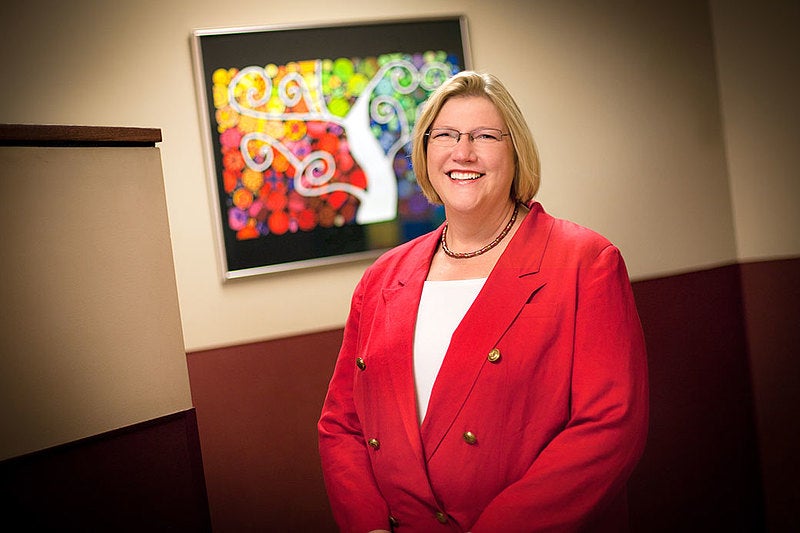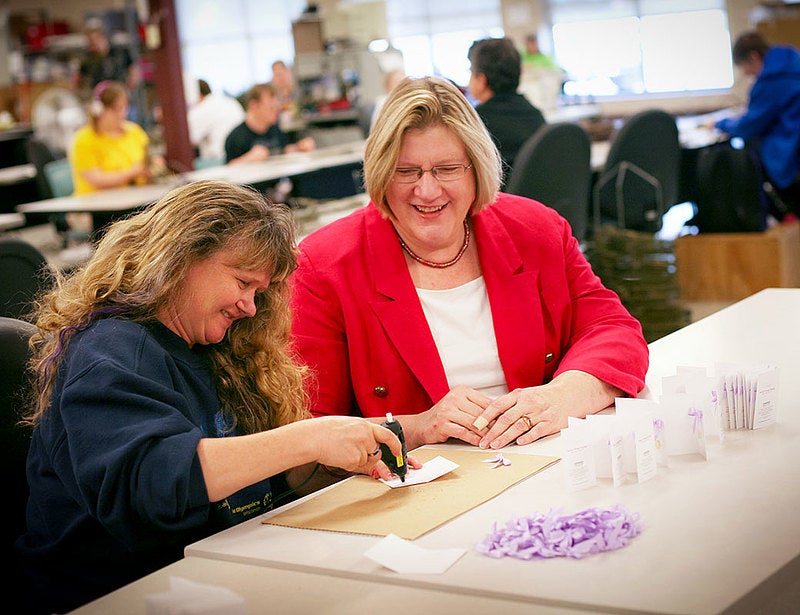Living her mission
by Kate Frentzel
“There are a lot of good things about a good day,” says Mary Kessens ’76.
As president and CEO of Aptiv, Kessens leads 300 employees serving 1,400 people with disabilities across 44 counties in western and southern Wisconsin. That adds up to a whole lot of chances for good things in a day.
Headquartered in La Crosse, Aptiv offers a staggering range of services and support to people across a huge spectrum of physical and cognitive disabilities. From employment services, to help with independent living and finances, to behavioral and physical therapies and more, Kessens says, “We meet people where they’re at and help them with what they really need.

Mary Kessens, president and CEO of Aptiv, says her job "has always been this calling for me—supporting people with disabilities through the skills that I’ve been able to develop."
To do this, Kessens and her staff connect people with disabilities to available resources in their communities. “Lots of times people with disabilities are invisible or overlooked,” she says. “It’s always a struggle to get support, but they’re not any different from you and me: we want to be connected to other people, we want to engage in activities, we want to be able to work. With just a few supports, people with disabilities can do anything they want.”
In non-pandemic times, employment services—like helping people find placements and supporting them in performing their jobs—is a big piece of what Aptiv does. So are youth services—helping kids with disabilities or behavioral needs to build skills so they can stay in school and live with their families in productive ways. But, like everywhere else, Aptiv had to pivot when COVID hit.
Almost immediately, the nonprofit closed its center-based programs and started developing virtual opportunities for participants to connect. Staff developed a set of safety protocols, and when it was safe to start reopening, they instituted a one- to two-week training and assessment period to make sure that people accessing programs and services could follow protocols like mask wearing, hand sanitizing, and physical distancing. As staff and participants have been getting vaccinated, they’re working on the next set of protocols to keep everyone safe.

At Aptiv, Kessens helps connect people with disabilities to center-based programs and to available resources in the community.
Doing this work—in a pandemic, no less—requires a lot of dedication, but Kessens experiences it as a calling: “It’s a great intersection for me of all of the management training and experience I’ve had throughout my career, plus this thread that runs through it of supporting people with disabilities. Whether I’ve hired people with disabilities to do a job or served on a board or whatever it was, it has always been this calling for me—supporting people with disabilities through the skills that I’ve been able to develop.”
Kessens talks about her work less as a job than a privilege—and for good reason. “We get to change people’s lives,” she says. “We get to make a difference so that people with disabilities may live more meaningfully. I’m a lucky woman to get to do this every day and live such a great mission.”